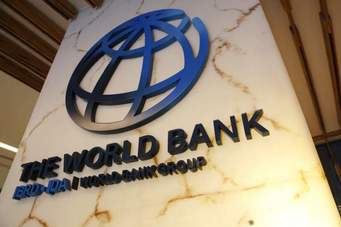The World Bank is projecting that nearly 50 million people in West and Central Africa including Ghana would face food insecurity during this year’s lean season from June to August 2025.
In its Food Security Update February 2025, the Bretton Woods institution said food security continues to be alarming in most low-income countries, particularly Africa.
It pointed out that conflicts and climate change continue to be the main drivers of food insecurity.
Since the last update, agricultural and export price indices have risen, closing at 3% and 6% higher, respectively. The cereal price index closed at the same level.
According to the February 2025 edition of the AMIS Market Monitor, international prices for crops (wheat, maize, rice, and soybeans) remain lower than a year ago, except for maize, which reached a 15-month high because of supply limitations.
The Food and Agriculture Organisation’s Food Price Monitoring and Analysis, indicated that coarse grain prices exhibited mixed month-on-month trends in countries of the Sahel and along the Gulf of Guinea in December 2024 and January 2025, although in several countries in the subregion, coarse grain prices were higher than during the same period last year.
For example, in Mali, wholesale sorghum prices in January 2025 were generally 10 to 25% higher than year-earlier levels, and millet prices were 15 to 45% higher, mainly reflecting high transport costs, conflict-related market disruptions, and production shortfalls in the 2024 cereal harvest in several areas.
In Burkina Faso, wholesale sorghum and millet prices were up to 55% higher on a yearly basis in most monitored markets, except for a few markets where the year-on-year increase in millet prices was more pronounced.
281m Globally Experienced Acute Food Insecurity in 2023
While 281 million people globally experienced acute food insecurity in 2023, humanitarian aid to food sectors declined by 30% compared to 2022. That is despite a long-term trend in assistance which showed a 56% increase since 2016.
The World Bank’s latest Global Economic Prospects report (January 2025) warns of prolonged economic stagnation, with global growth projected to remain at 2.7% through 2026.
Although this signals some stability, it falls short of driving meaningful poverty reduction or tackling rising food and nutrition insecurity in low-income countries.
The report underscored how persistent challenges—high inflation, mounting debt, and trade disruptions—are exacerbating food insecurity for the world’s most vulnerable.
Latest Stories
-
Ghana Swimming Association inaugurates LOC for Africa Aquatics Zone 2 Championships
12 minutes -
Bank of Ghana reverses dismissal of nearly 100 employees
14 minutes -
A Highway of Tears: Ghana’s road safety crisis demands action now
44 minutes -
Ras Mubarak: Open letter to Ghana’s Minister of Transport
50 minutes -
UniMAC hosts Dr Bryan Acheampong for landmark AI and future of work lecture
1 hour -
The future of work belongs to humans who know how to work with machines – Dr Bryan Acheampong
1 hour -
Atwima Nwabiagya MP calls for developing Barekese and Owabi dams into tourist sites
1 hour -
Ghana–China ties deepen as Chief of Staff hosts high-level Chinese investor delegation
1 hour -
Minority demands PURC justify 2.45% tariff hike amid declining economic indicators
1 hour -
New book “The Essence of Ghana” to launch July 1, celebrating national identity through commemorative days
2 hours -
Goosie Tanoh presents 24-hour economy document to Speaker, policy kicks off on July 2
2 hours -
Prof Ali-Nakyea narrates how 2016 Range Rovers were falsely declared as 2003 Peugeots at Takoradi Port
2 hours -
CPP expresses gratitude for reinstatement of Republic Day and Founder’s Day
2 hours -
Tema Oil Refinery participates in 2025 Ghana-China Business Summit
2 hours -
Police arrest 2 in Wassa Akropong for tampering with credit-sold mobile phones
3 hours

